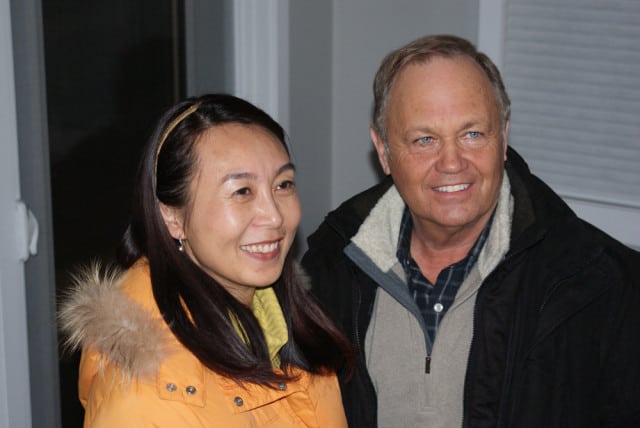
Bill Rafoss and his partner Suzy Xue will arrive in Kenya in March to investiagte the election and the aftermath of the vote.
Five years ago Bill Rafoss was forced to flee Kenya because of widespread violence following the country’s presidential election. Now he is gearing up to return to the East African nation for the upcoming 2013 election to try to prevent the coercion from happening again.
Rafoss is the former chief investigator of the Saskatchewan Human Rights Commission and a political studies sessional lecturer at the University of Saskatchewan. He will arrive in the coastal city of Mombasa in the days leading up to the March 4 vote.
During his stay, Rafoss will monitor polls and investigate electoral scare tactics in the area by taking photos, talking to Kenyan voters and collecting statements alongside the Independent Electoral and Boundaries Commission. If electoral fraud occurs, his work will be used as evidence.
Allegations of tampered numbers and fraudulent voting in the 2007 presidential election lead to deadly tribal clashes that lasted for two months. The violence left 1,100 people dead and over 300,000 displaced.
“Kenya has always been one of the most democratic countries in Africa, so this last election was a deviation from that and now the question is whether they can get back on track and show the world they can be a successful democracy,” Rafoss said of the coming election.
A history of ethnic fighting in Kenya has left the country divided among many tribal lines, both physically and politically. Politicians are trying to calm these tensions ahead of the election.
“They have this slogan called Kenya First, meaning not your tribe first, but the country has to come first,” Rafoss said.
This will be Rafoss’ fifth trip to Africa.
Since the 2007 election Kenya has amended its constitution in an attempt to avoid a repeat of last election’s violence.
But some violence has already begun in the country — months prior to the upcoming election — leaving some fearing the worst.
“I think the odds are pretty good” for violence, Rafoss said. “If there is going to be violence, it’s probably going to happen in [the capital city] Nairobi.”
While efforts are being made to avoid violence, there is not much that can be done a month before the election.
“It has to be a long-term education campaign,” Rafoss said of the steps needed to improve Kenya’s electoral system. “They need to educate the population on how to be a successful democracy.”
Adding to the tension of the upcoming election are the controversial candidates. Two politicians indicted by the International Criminal Court for their role in the 2007-08 violence are now running: Uhuru Kenyatta for president and William Ruto as his deputy president.
“If [Kenyatta is] elected, people would move to impeach him. I think it could cause a lot of tension,” Rafoss said. “If he gets elected I would predict all hell is going to break loose.”
Raila Odinga, Kenya’s current prime minister, is leading the polls with a 46 per cent approval rating, while Kenyatta is in second with 40 per cent. Should either candidate not receive over half the vote in the election, there will be a run-off vote between the top two candidates — likely Kenyatta and Odinga — on April 11.
“If Odinga wins this one, I think that will be the status quo and people will accept that…. If there was a sudden change, that may bring about the conflict,” Rafoss predicted.
In case things get hairy, Rafoss already has an escape plan. He will fly to Tanzania, which he called the “back door” of Kenya and leave Africa from there. The Kenyan Human Rights Council has agreed to provide security for him in Mombasa.
Rafoss’ interest in Africa began while he was studying politics at the U of S. He says reading about the continent wasn’t enough for him and that he wanted to see what was happening first-hand.
“I want to be there to witness history and see what happens and use whatever skills I have in terms of helping out the Kenyans, then also to be able to come back here to the university and be able to speak from first-hand knowledge about what happened there,” Rafoss said.
While Rafoss says Western countries can offer support to Kenyans and guide the people on the processes of democracy, he is careful about imposing his ideas on what is best for the country. He says Westerners need to be careful when presenting potential solutions to Kenya’s electoral problems.
“To a certain extent this is a journey for Africans to figure out,” Rafoss said. “I’m trying to understand how they think and how they work.”
—
Photo: Bob Low
Leave a Reply